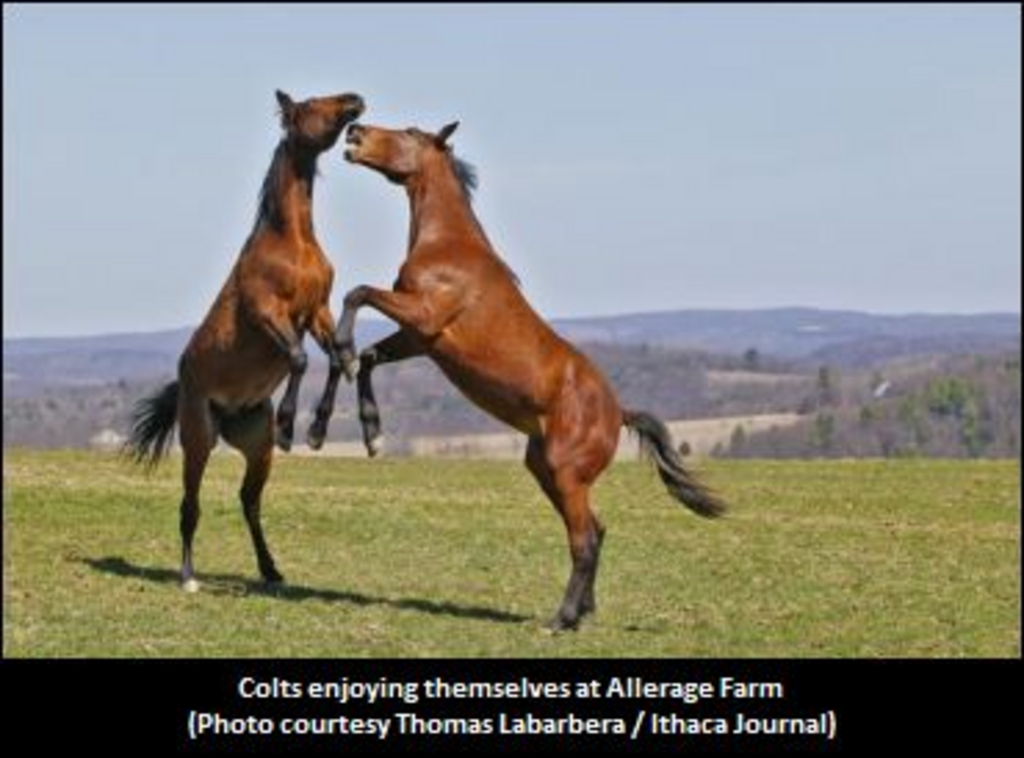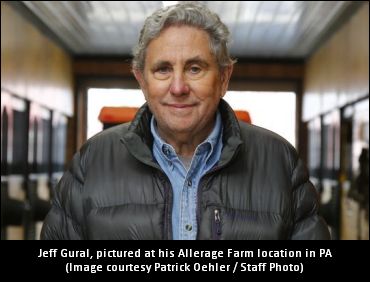
A years-long study has determined that there appears to be a link between the practice of fracking and a rare, life-threatening birth defect in young horses -- in this case, in Standardbred foals -- known as 'dysphagia.'
The Standardbred Canada website has followed the development of the story (here and here) since the spring of 2016.
'Fracking,' also known as hydraulic fracturing, is a process of injecting liquid and chemicals deep into the ground to create and/or expand fractures in rocks and rock formations. Fracking is done to allow more oil to flow out to areas where it can be accessed and extracted easier.
It was discovered four years ago that there was a disproportionately high amount of dysphagia cases that were diagnosed at Jeff Gural’s Allerage Farms location in Pennsylvania. For years, mares that had been foaling at Allerage’s Pennsylvania location had produced foals that had suffered from the rare condition. The life-threatening ailment stops foals from being able to swallow properly. At the time, a veterinary team at Cornell University was able to save 17 of the foals that had been born with the disorder. The foals were cured with treatment. Dysphagia causes quite the struggle for the first few weeks of the foal’s life, and the condition can prove fatal.
A subsequent Pennsylvania Department of Environmental Protection investigation into the groundwater at the farm concluded that the groundwater was in fact contaminated, but the PDEP investigation stopped short of concluding that the fracking practices that took place next to the farm was the culprit in the matter.
 Now, multiple outlets have referred to the recently-announced findings that have determined that there is a link between fracking and cases of dysphalgia.
Now, multiple outlets have referred to the recently-announced findings that have determined that there is a link between fracking and cases of dysphalgia.
The study controlled as many variables as it could, and focused on mares and foals at both Allerage's farm in Pennsylvania and the location in New York State.
The broodmares examined in the study either spent their entire gestational period on one of Allerage's farms or moved to the other farm in late gestation. Broodmares were fed the same commercial concentrate and hay was sourced from a single supplier.
The paper outlines that dysphagia is so rare that it is believed that less than 0.5 per cent of foals are naturally stricken by the ailment. It is also important to note that previous study into the ailment has been very limited.
In regard to the timeframe that was examined in the Allerage cases, 17 of the 65 foals that were born were dysphagic. Six of the dysphagic foals were out of mares that were at the Pennsylvania farm for the entirety of the gestation period. The remaining 11 dysphalgic foals were out of mares that had moved from the New York farm to Pennsylvania farm during mid to late gestation.
Additionally, the dams of the dysphagic Pennsylvania foals never produced a subsequent abnormal foal once they foaled at the New York farm, regardless of whether or not they had lived on the Pennsylvania farm for the first half of gestation.
According to the study, a water filtration system was installed at the Pennsylvania farm after it was determined that the groundwater there contained high levels of polycyclic aromatic hydrocarbons (PAHs). PAHs are chemicals that are commonly used in fracking and have been linked to health risks to both animals and humans. According to the study, the numbers of dysphagic foals dropped significantly after the water filtration system was installed.
"I think it's a bit soon to say that all farms should have filtration systems installed for their wells," veterinarian Kathleen Mullen, the study's lead author, said, "but this study does provide at least preliminary evidence that well water in places with unconventional natural gas development can see increased levels of PAHs."
(With files from Science Direct, Environmental Health News, and horsetalk.co.nz)

